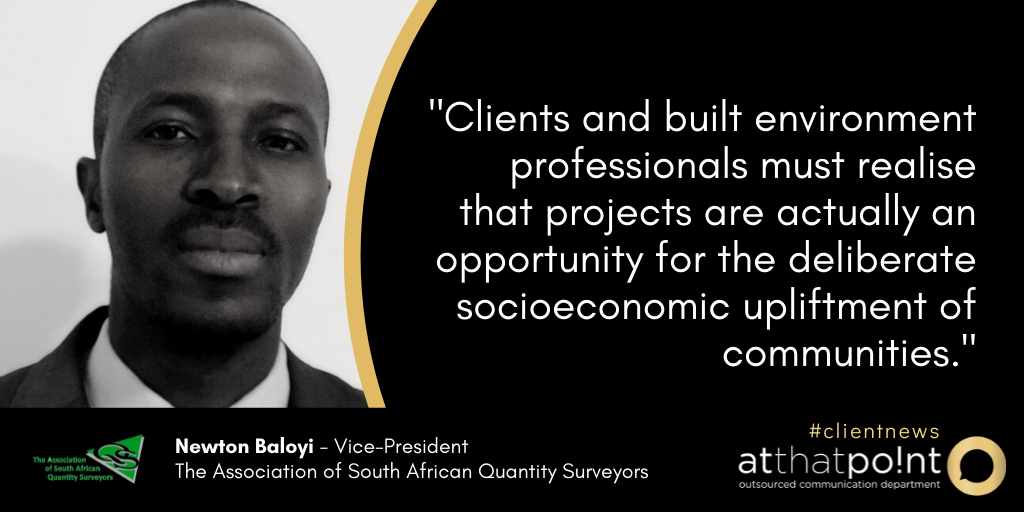|
The Association of South African Quantity Surveyors (ASAQS) has welcomed the announcement by President Cyril Ramaphosa, that the government is setting up a special police unit to deal with the construction mafia that has been disrupting businesses in the country for years. ASAQS have made numerous calls since 2019 for SAPS to get involved in the matter, as the issue affects infrastructure projects, investor confidence, and the safety of professionals in the built environment.
The construction mafia entails gangs who intimidate foremen, project managers and construction bosses by going onto project sites and demanding a stake. The result? Construction projects worth at least R25bn being violently disrupted and halted in South Africa. According to Newton Baloyi, ASAQS Vice President, the President’s announcement is welcome. "With the police taking over the criminal element, professionals in the built environment will be able to focus on the fundamental reason for local community dissatisfaction when large projects are involved." Preventing Disruption is better than Cure According to Baloyi, disruptions in the construction sector are not limited to mafias. “It usually happens the moment labour and companies from outside the local communities are appointed to projects. The local community gets upset, as they feel deprived of opportunities for meaningful economic participation”. He explains that this can be expected, as many of these mega projects are being done in environments where people live in poverty, are unemployed, and looking for opportunities. Baloyi believes that a shift in mindset is required to fully address the issue. “A mindset shift is required wherein projects are evaluated and monitored not only on the basis of technical and financials, but to include socioeconomic impact. Clients and built environment professionals must realise that projects are actually an opportunity for the deliberate socioeconomic upliftment of communities. Instead of simply ticking the boxes of compliance, we should focus on real impact”. A Plan for Community Involvement Baloyi says the first step to meaningful community involvement is to integrate social and economic sustainability into the planning of projects. "In order for integration to happen, the project procurement strategies should proactively identify opportunities for the localisation of project value chain. This can be best handled by built environment professionals as part of the project development process. It's critical that a project is developed and marketed in such a way that local communities have a say and a sense of ownership," he notes. "All too frequently, the buck is passed on to the contractor. But the engagement with the community shouldn’t start when the contractor arrives on site. It must come from the developer and his professional team prior to the arrival of the contractor.” He says the project teams should go beyond simply subcontracting and labour. “We need to think beyond that and consider other high impact opportunities for maximum circulation of money in the communities, such as, the part localisation of material supplies, manufacturing, assembly, unbundling projects and ringfencing opportunities for the local communities.” Baloyi concludes by adding that once a community has taken project ownership, it becomes easier for those communities to identify criminal elements. “They are then personally committed to the project and part of its beneficial elements. They are not only uplifted, but they also invest economically and socially. Those are the kinds of initiatives that have a significant impact." ENDS MEDIA CONTACT: Stephné du Toit, [email protected], 084 587 9933, www.atthatpoint.co.za For more information on ASAQS please visit: Website: www.asaqs.co.za LinkedIn: linkedin.com/company/asaqs Twitter: @the_ASAQS Facebook: facebook.com/asaqsza
0 Comments
|
Archives
July 2024
Categories
All
|


 RSS Feed
RSS Feed